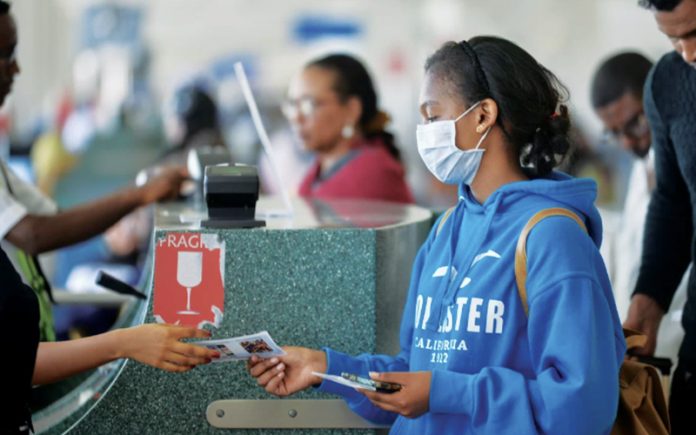A large poll of 1.3 million citizens of the world, carried out for the UN, reveals the concern of populations for health issues in the short term. Overall, the situation is expected to improve within 25 years, especially in sub-Saharan Africa.
A large global survey. On the occasion of its 75th anniversary, the United Nations has gathered the expectations and the urgencies of the populations, for the post-pandemic and for the long term. In the face of insufficient health care to meet the needs of the pandemic, the main short-term priority, of respondents globally, is “universal access to health care”.
As Covid-19 has deepened inequalities, many have prioritized access to basic services and support in the hardest-hit places and communities in the short term. “The coronavirus crisis has led to greater support for international cooperation,” said Fabrizio Hochschild, special adviser to the UN.
In addition to access to water and sanitation, education seems to be a central concern of respondents. As the coronavirus has forced children out of school around the world, “investments in education and youth” have been welcomed, especially in sub-Saharan Africa and Central and South Asia.
Over 1.5 million people in 193 countries shared their short and long-term priorities, ideas for action and calls for a more inclusive and transparent UN to lead the response to urgent global challenges.
Of course, the priorities differ from region to region. In developing countries, the urgency revolves around “global solidarity” and the need to fight against inequalities, which have “increased with Covid-19”. In developed countries, fewer respondents consider “supporting the most affected areas” as a priority.
The poll highlights the importance that citizens of the world place on environmental issues and the fight against global warming, one of the main long-term global challenges.
Greater optimism!
The highest percentage of respondents who chose this global emergency as the main threat is in Latin America and the Caribbean (73%), and the lowest are in sub-Saharan Africa (37%).
Then follow the challenge of employment, respect for human rights and conflict reduction. This quest for peace remains the top priority for respondents in East and Southeast Asia, the Middle East, and sub-Saharan Africa. While respondents in countries that are not in conflict are more concerned with tensions between countries. Those living in countries in conflict are more concerned about violence within their borders.
More broadly, one of the lessons of this poll is the “utmost optimism” about the future shown by citizens of developing countries and those living in conflict situations. By 2045 – the UN’s centenary year – 59% of sub-Saharans express their optimism, 20% their pessimism.
The MENA region is more divided (38% against 44%) and the pessimists prevail. It will of course be observed that the regions that are the furthest behind, in terms of human development, are the most “optimistic” for the future. A similar relationship can be seen when asking people around the world about peace and security.
For a more efficient UN!
Sub-Saharans make aid to the most affected places and universal access to health top of their priorities, followed by strengthening national solidarity. A trio that can be found in the MENA zone, with a predominance of concerns surrounding universal health. It will be observed that climate problems are cited by only 18% of respondents in sub-Saharan Africa, while this concern is more strongly felt in Europe and North America.
The need for a multilateral approach has also been reinforced to confront Covid-19 and other global crises. A majority of people polled around the world say the pandemic has “strengthened their views on the importance of greater cooperation between countries.”
And almost all respondents (97%) supported the importance of international cooperation in addressing global challenges. More than half of those surveyed believe that international cooperation is essential, while a third consider it very important and more than 10% quite important.
To rethink this multilateralism, many expect “a leading role from the United Nations” in addressing both immediate and long-term global challenges. And plead for a UN “more inclusive, more engaged, more responsible and more efficient”.
Reference: https://news.un.org/fr/story/2021/01/1086162

